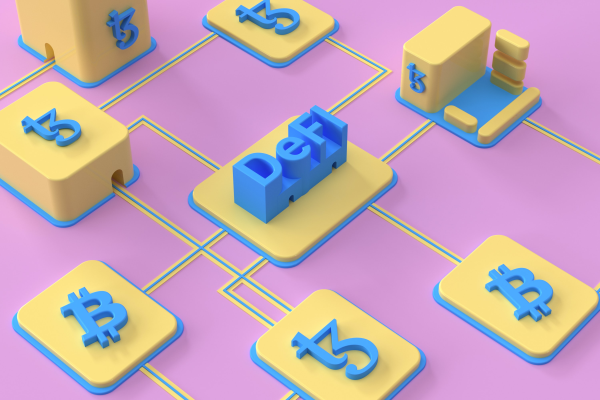Binance becomes the second strongest force in Uniswap - What does this mean for the independence of the system?
10/23/2022, 07:33 AM

The conflict between Binance and Uniswap highlights the ongoing debate about the centralization of decentralized infrastructure. Binance, the world's largest centralized crypto exchange, is competing for control of Uniswap's decentralized autonomous organization. This has led to concerns about the decentralization of the organization.
Binance has been accused of using tokens that belong to users. However, Binance has denied this and has said that there was a misunderstanding about what happened during the transfer of a large number of UNI tokens between wallets.
The reaction of Krypto Twitter has been one of concern about the decentralization of the organization. There is a worry that central players will have too much influence over the decisions made by the organization.
The economic power of central crypto exchanges is often cited as a danger to decentralization. With the large amounts of money flowing through these exchanges on a daily basis, they have the potential to exert a lot of influence.
The conflict between Binance and Uniswap highlights the importance of decentralization. Decentralized organizations are designed to avoid the problems that can occur when central players have too much control. However, if central players are able to accumulate a lot of power, they can still disrupt the functioning of the organization.
Binance is the world's largest centralized crypto exchange (CEX) by volume and is on course for Uniswap's decentralized autonomous organization (DAO). Binance currently holds 5.9% of the voting rights, making it the second most powerful voting member of the organization. Recently, the founder of Uniswap spread the rumor that Binance would use tokens owned by its users. Binance speaks of a “misunderstanding”.
The economic power of the large central crypto exchanges is often cited as a danger. Considering the dollar amounts flowing through crypto exchanges on a daily basis, the dimensions become apparent. Because Binance is at the forefront in the period between March and August. And with a daily dollar flow almost seven times as high as the OKX exchange in second place. Uniswap is also involved and takes the throne among the decentralized exchanges.
Precisely because of the prominence of the actors involved, a fundamental discussion is moving into the limelight: The question is not only whether centralized units are currently beginning to compete for control of decentralized infrastructures. In addition, crypto fans are wondering if history is repeating itself and we are headed straight for a digital, centralized banking system.
Binance has been accused of using tokens that belong to users. However, Binance has denied this and has said that there was a misunderstanding about what happened during the transfer of a large number of UNI tokens between wallets.
- Binance has recently been voted as the second most powerful voting member of the Uniswap DAO.
- This gives Binance 5.9% voting power in important protocol decisions made by the world's most well-known decentralized crypto exchange.
- The elephant in the room is the question: Are central institutions on their way to controlling "decentralized" infrastructures?
The reaction of Krypto Twitter has been one of concern about the decentralization of the organization. There is a worry that central players will have too much influence over the decisions made by the organization.
The economic power of central crypto exchanges is often cited as a danger to decentralization. With the large amounts of money flowing through these exchanges on a daily basis, they have the potential to exert a lot of influence.
The conflict between Binance and Uniswap highlights the importance of decentralization. Decentralized organizations are designed to avoid the problems that can occur when central players have too much control. However, if central players are able to accumulate a lot of power, they can still disrupt the functioning of the organization.
Binance is the world's largest centralized crypto exchange (CEX) by volume and is on course for Uniswap's decentralized autonomous organization (DAO). Binance currently holds 5.9% of the voting rights, making it the second most powerful voting member of the organization. Recently, the founder of Uniswap spread the rumor that Binance would use tokens owned by its users. Binance speaks of a “misunderstanding”.
The economic power of the large central crypto exchanges is often cited as a danger. Considering the dollar amounts flowing through crypto exchanges on a daily basis, the dimensions become apparent. Because Binance is at the forefront in the period between March and August. And with a daily dollar flow almost seven times as high as the OKX exchange in second place. Uniswap is also involved and takes the throne among the decentralized exchanges.
Precisely because of the prominence of the actors involved, a fundamental discussion is moving into the limelight: The question is not only whether centralized units are currently beginning to compete for control of decentralized infrastructures. In addition, crypto fans are wondering if history is repeating itself and we are headed straight for a digital, centralized banking system.